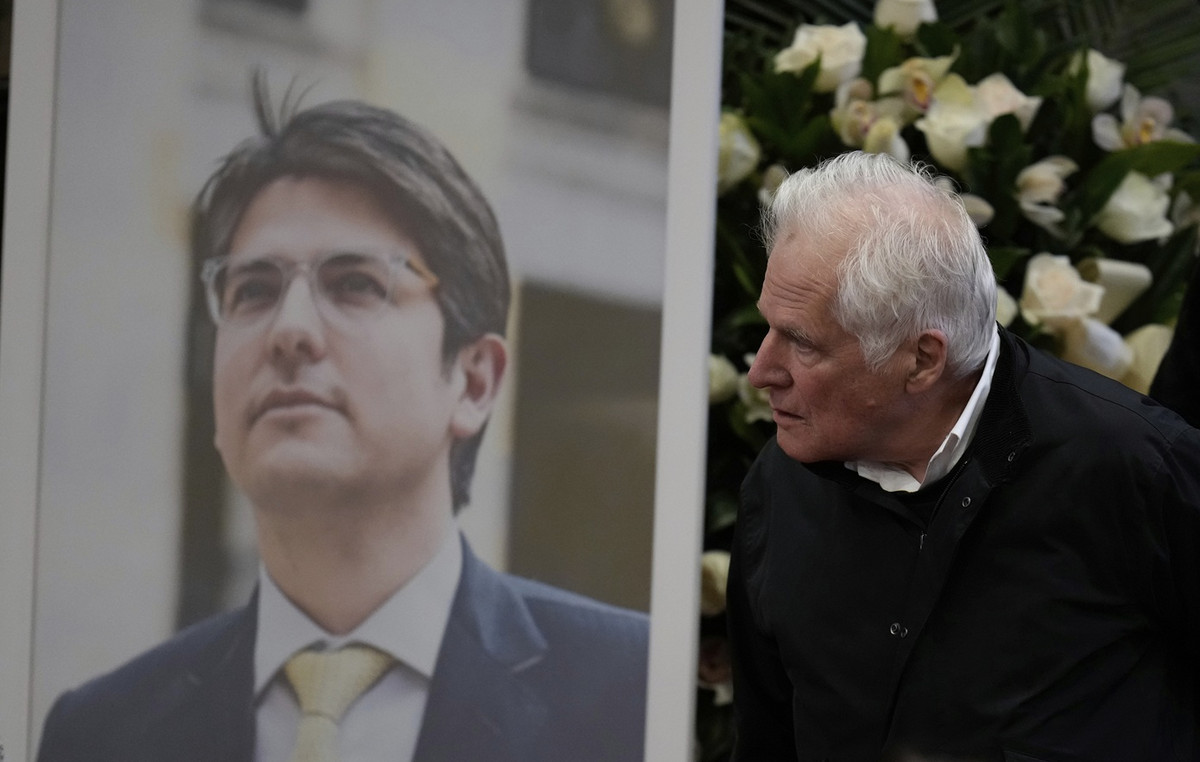This article is published in number 14 of Vanity Fair on newsstands until April 4, 2023
«A family with two mothers does not exist». When Maya, who is 19 today, she heard this phrase for the first time when she was in elementary school. «I grew up in Veneto, in Treviso, where fifteen years ago there were no other boys and girls born into same-parent families. Maybe I was the only one.” For this reason, mother Daniela and mother Stefania were called to school at one point. «One of my teachers was strongly convinced that I didn’t tell the truth about my family because it was the first time that a little girl was in class who didn’t just have one mother, but two». In addition to this episode, Maya says that all in all she was lucky «because I almost never felt discriminated against and I quickly learned not to give importance to the comments of some classmates. I’ve never felt hurt or bullied.”
Maya got to know her family history early on. «My mothers immediately chose to tell me how I was conceived precisely to give me the tools and awareness necessary also to respond to those who, until a few years ago, did not think that a family like ours could really exist». Maya was born thanks to her assisted fertilization and after coming of age she obtained the legal recognition of both of her mothers. “I know the donor because he is a friend of the family. In Veneto twenty years ago it was not so easy to find information related to medically assisted procreation, especially in relation to homoparental families». It was Maya, during her high school years, who asked her mothers who her donor was. «Some of my friends born in homoparental families, when they became adults, began to have more information about their donors and so my curiosity was born. I wanted to know, for example, if she had brown eyes like mine, since my mothers are both blondes with blue eyes.’
At this point Maya bursts out laughing. “No, he has blue eyes too. I am the only one in my whole family who is big with dark eyes and brown hair. Apart from this detail I was happy to know it was him because I know he will always be there. But nothing has changed: I have two parents, my mothers». Maya grew up going to demonstrations often and there she made friends with other girls and boys born into same-parent families. «Unfortunately now that I study Physics in Trieste and live here alone, I find it more difficult to be there often but the event has always been an important moment for me. I didn’t take to the streets recently to protest against the stop to transcripts of birth certificates of children born into same-parent families, but my mothers did». At least two thousand children of homosexual couples live in Italy. This is the data recorded by the parents’ association Rainbow familieswho has been fighting for eighteen years to demand rights for their children. «It is difficult to eradicate the fear of those who think that families like mine are wrong», Maya continues as she arranges her shopping for the week. «If I met these people I would tell them to look at me: I’m fine, I’m a girl like many others, full of passion. I love dance, I listen to the Arctic Monkeys, I love the sea and I’m finishing reading Wuthering Heights by Emily Brontë. There is a place of the heart where Maya goes every year with her mothers, who have been separated for some years: «The best moment for me is when we all go to Eraclea for family holidays. We have a little house that we rent, always the same, and for me it’s a precious nest. Today we are many because one of my mothers remarried and had two more children with another partner. I have a very nice relationship with both her and my brothers and I try to see them as often as I can».
For Lia, 16, or rather almost 17 as she underlines when she begins to tell herself, her family is music. “At home we all sing, perhaps the one who does it a little less is father Tommaso, but we all play, we love music, the guitar, the piano, the choir and karaoke”. Lia was conceived in the United States through gestation for others and now, after a long adoption process, both of her parents have also been legally recognized in Italy.
Today, in our country the only recognized parent is the biological one, while the other has no rights. To obtain them, he must resort to stepchild adoption, the adoption of the partner’s child, which before being removed had been included in the law on civil unions of 2016. On the subject, in 2021 a sentence of the Constitutional Court defined the void “no longer tolerable protection” for those born from assisted procreation practiced abroad by same-sex couples. «At the moment I am not in contact with my donor but I will be able to meet her at 18 if I want»continues Lia. “On the other hand, we have relations with the carrier, we know her very well. We meet her when she comes to Italy or we go to her in the United States. She is part of the family, she is a friend of hers ». And for Lia, taking the plane and reaching her with her dads is always an exciting experience. «I love travelling, you are very passionate about her, as well as photography and for some time now politics. Let’s say that I no longer dream of becoming a Hollywood actress like when I was little, but only because it seems unrealistic to me».
Instead, the future imagined by Emma, 17, is very concrete. “On horseback. I have been practicing horse riding since I was a child and now I do it at a competitive level. I really like racing because I love competition. Not so much the result, but knowing that I did a good job». When we start chatting Emma is leaving for her school trip. «My family is a bit messy, can you tell? But only because we are four women: me, my twin sister, Giada, and our two mothers: Roberta and Chiara. We all have very strong characters and therefore there are conflicts, but love is never lacking, which is immense. On the contrary, I’m sorry because we are very busy and the four of us don’t always manage to be together ». Emma’s biological mother is Roberta, the other mother has recently obtained legal protection through adoption. «I have always experienced Father’s Day in a particular way because in elementary school they made me do a little job for my grandfather and I didn’t understand the meaning of it. Then I began to see that for that party all the classmates invited their fathers to school and the usual questions started: “You don’t have a father”, “You have a different family”».
But for Emma, who was conceived in Spain with an anonymous donor, there had never been a “different”. “There have always been so many families made up in many ways. Sometimes it happens to me to ask myself questions about my donor but because I’d be curious to see if I look like him. I never thought he was directly related to me in any way.’ Insecurities, when there have been, for Emma have come from outside. “It was the others who wanted to make me feel different. Once at school a friend of mine convinced me to give us a kiss and everyone started saying “she’s like her moms”. What sense did she have?” In high school, with the music of Coez and Gazelle in her ears, she fared better. “I understood that it’s the others who don’t see how much beauty there is even in a family like ours”. A family with the same dynamics as many. A small anecdote from this interview tells it well. Shortly before the publication we received a phone call from mother Roberta, who knew about Emma’s choice to participate but hadn’t dared to ask her anything about it. «Did she say horrible things about us?», Roberta asks almost in a whisper. «Because we are in the age of adolescence and in short, we know how it works».
To subscribe to Vanity Fair, click here
Source: Vanity Fair
I’m Susan Karen, a professional writer and editor at World Stock Market. I specialize in Entertainment news, writing stories that keep readers informed on all the latest developments in the industry. With over five years of experience in creating engaging content and copywriting for various media outlets, I have grown to become an invaluable asset to any team.







